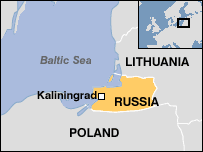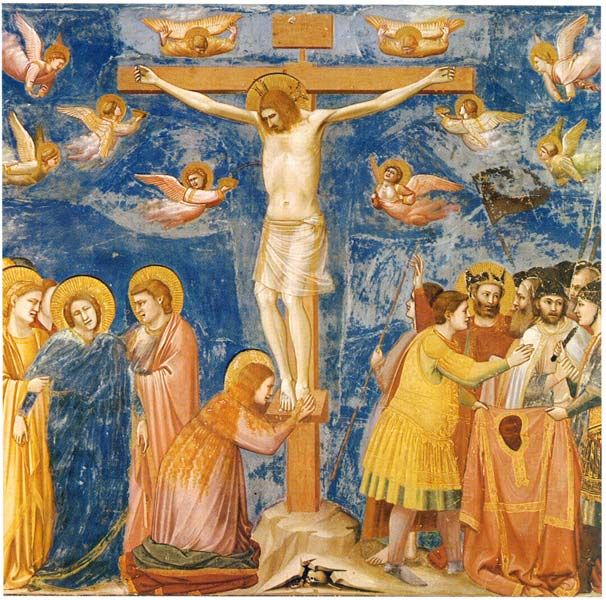What follows is a very long post on Sudan and Darfur. It reflects my understanding of this tragic situation as well as the competing international interests that have essentially neutralized all attempts by the United States to impose a decisive solution or a significant intervention that might end the violence. The post was written as a response to a letter containing several articles on Darfur mailed to me by a member of my congregation. (Note that I have not attempted to document my data with links or footnotes although there are some helpful links listed at the posts end).I have been closely watching and following the situation in Sudan since 1980 when my wife and I met two Christian missionaries who had been working in South Sudan with irrigation assistance but had been forced to leave (along with most other Westerners) because of growing violence against Christian and animist Africans by Arab Muslim military attacks from the north. The major explosion of the so-called “civil war” came two years later which meant that our friends could not return to continue their work there or to visit the people they had worked with. Eventually, many fled southern Sudan into Kenya which is where our friends eventually returned to missionary service (later moving to Pakistan after which they retired to Minnesota).
This “civil war” was always not so much a civil war as it was a systematic slaughter of civilians in the south by government forces and government-backed militias. The
modus operandi was exactly the same as that now being used in Darfur. Government planes bomb and strafe a village followed by the swift arrival of armed troops (primarity Arab Muslims). Men are frequently rounded up and shot, women raped, the village looted and burned and older children sent to the Arab north and sold into slavery.
In many cases a person’s life or liberty could be “purchased” by becoming a Muslim. Tens of thousands of African Christians have endured execution or slavery rather than confess Allah and Mohammed as his Prophet.
Because of the Christian population in south Sudan and the historic presence of missionary agencies who worked in that area for decades the American Evangelical Christian community tried desperately to get media attention and political pressure to be brought against Sudan to stop the killing. The situation was made more difficult with a small minority of the south Sudanese taking up arms and fighting back against the Khartoum government, partially in self-defense and partly in an attempt to gain independence from the north (which had legislated and adopted
sharia law, based on the Koran, for all Sudanese, whether Muslim or not).
American efforts to confront Sudan over the issue of the killings in the south and its tacit approval of the slave trade were led primarily by several Christian U.S. Representatives (virtually all Republican) backed by Christian evangelical mission and relief organizations. Many international human rights organizations also began speaking up, especially on the slavery issue.
To his credit, President Clinton imposed sanctions and restrictions on American oil companies who wanted to get in on the ground floor with recently-discovered massive oil reserves in Sudan. European countries did not join in supporting the U.S. on this issue, preferring to pursue their own self-interests. France, especially, took advantage of the American absence in engrandizing itself to the Sudanese government in return for taking the lead in oil exploration and the development of the Sudanese oil industry. France is still the biggest business partner with Sudan along with China, whose growing need for oil and lack of concern for anything remotely connected to human rights makes Sudan a good place to go shopping.
As the New Yorker article explains, the pressure exerted by Clinton and a few other cooperative countries (Canada not among them, by the way) led the Sudanese government to start a process of negotiation with the south. Under President Bush’s continuation of the policy (with much restraint and minimal criticism in order to facilitate the peace process) a cease fire and nearly-completed truce agreement has been worked out between Khartoum and the southern rebel forces.
Unfortunately, this truce freed up government troops who soon were being used to control a growing resistance movement in the Darfur region of western Sudan. The Darfur rebels hoped to make a deal similar to that being negotiated with the south. Unfortunately for them, Darfur has been found to possess a large share of Sudan’s oil. It was not in Khartoum’s national interests to allow anyone but themselves control of that resource.
Virtually all the population in Darfur is Muslim. But Khartoum used the cultural divide between north Darfur Arabs and southern Darfur Africans to split the resistance and gain the Arab leadership as proxy allies to “cleanse” the area of the majority African (non-nomadic) population.
This began several years ago and has been fairly well covered by major media such as the Washington Post, New York Times and the Wall Street Journal as well as international human rights groups and Christian relief organizations.
Throughout this entire Sudanese series of internal killing and destroying, the United Nations and most of Western Europe, have either mouthed toothless threats, hoped that the neighboring African countries would step in to help or allowed the United States to spend generously on human relief programs while they continued doing their lucrative business deals with Khartoum.
Both Clinton and Bush have made aggressive and very public appeals to the international community to join with the United States in forcing Sudan to back down. As is obvious, the basic response has been for the United Nations to continue to mouth platitudes and for France and China to, essentially, tell the U.S. to go to hell.
Interestingly enough, Iraq was similarly being used by France as a major source of its oil and economic investments. This was, of course, taking place while, on paper at least, France was a signatory with the sanctions imposed by the United Nations.
France and other European nations had little objection to the invasion of Afghanistan (because they had virtually no economic interests there) and even provided at least token troops and support.
With Iraq, however, these nations (including Russia) fought tooth and nail to keep the United States from invading one of their “cash cows.” In my opinion, it has not been President Bush’s “unilateralism” that has caused France and Germany and a few other nations to give the United States a cold shoulder. Rather, the issues are more fundamentally centered on a conflict between European security interests (which might have some sympathy for the invasion of Iraq) and economic interests (which clearly favored the status quo).
In some ways the “Old Europe” has been placing itself in opposition to the United States and our foreign policy priorities long before President Bush took office and invaded Iraq. Repeatedly, especially as regards the Middle East, America’s long-term economic and security interests have come into conflict with the short-term interests of France and Germany.
Part of this is economic. The United States has a strong and robust economy that can outlast an international crisis and eventually rebound. France and Germany (as well as most of the Scandinavian countries) are plagued with few natural resources, weak economies and a declining workforce. With lowered productivity they are increasingly unable to maintain the socialized societies that have evolved over the past 50 years. The huge numbers of unskilled East Germans who became part of the unified Germany has almost bankrupted the entire economy. Both France and Germany have increasingly relied on immigrant labor, largely from the Arab and other Muslim Middle East countries. It is estimated that Sweden may well have a majority Muslim population by as soon as 2025.
While the United States economy can absorb a disruption of oil production and economic investment in places like Iraq, Iran and Sudan, most of “Old Europe” cannot (or will not). Increasingly, China is also becoming more and more dependent on the status quo in promoting its own economic growth and stability.
What this means concerning Sudan and Darfur is that the United States is unable to bring the necessary pressure to bear on Sudan without seriously threatening the economic and political stability of France, Germany and, to a lesser extant, China.
In Iraq, the United States, for its own long-term interests, weighed the matter of competing interests and, in the end, refused to let France, Germany and Russia determine our foreign policy.
Sudan, however, is not as high a priority for these long-term U.S. interests as is Iraq. Iran, Syria/Lebanon, Palestine and Israel are of more immediate concern. The United States cannot afford to further alienate and damage our political and economic responsibilities to France, Germany and China over Sudan. There is, however, strong mutual interest in freeing Lebanon from Syrian control and containing Iran’s nuclear weapons program. In addition, American insistence that China be a full partner in negotiating with North Korea means that we cannot afford to confront them over Sudan at this time either. Until these matters are resolved I am afraid that, short of a change of heart in France and China, there is little that the United States can do except provide aid for the refugees and continue to shame the United Nations and the leading nations on the Security Council (which include the permanent membership of France, Germany and Russia and China….Japan is largely supportive of the United States position) into doing something more substantial than posturing with verbal clichés and symbolic wringing of hands.
Thus far, Europe and Africa appear to be both unwilling and unable to assert the sort of economic, political and military pressure on Sudan to halt the “cleansing” of Darfur.
It is no small thing to note that only the United States has (unofficially) labeled the purging of the Darfur African population as genocide. In addition, the United States, both through government aid and private, charitable giving, is providing the vast majority of relief to the people of Darfur.
One positive note is that the American outrage over Darfur is a bi-partisan outrage. It has transcended the divide between Democrats and Republicans, especially in the House of Representatives.
In a just world, the Sudanese government would be squeezed out of existence by a united international community. But the world is not just. And today the people of Darfur are the victims.
I have no doubt that, if the spread of governmental reform continues its success in Iraq and Afghanistan and, if that spirit of reform begins to move in places like Iran, Syria, Palestine, Saudi Arabia and Egypt, then Sudan will become not only a pariah in the eyes of the United States, but a pariah amongst its awakening neighbors, as well.
By God’s grace, peace and justice will one day come to the people of Darfur. Until that day comes we must not allow them to be forgotten or abandoned. And we should remember them with our pocketbook as well as with our prayers.
By the way, a wonderful internet site on the Darfur situation with many links to photographs is
http://www.savedarfur.org/go.php?q=/100Hours/PhotosOfDarfur.htm (be sure to click on “Latest News” at the bottom of the page for daily updates on matters related to Darfur). Other photographs can be found at
http://www.hrw.org/photos/2004/darfur1/index1.htmand
http://www.nytimes.com/2005/02/23/opinion/23kristof.html?ex=1266901200&en=d9bc5fbe39eed505&ei=5090&partner=rssuserland
(which contains a very disturbing report on the atrocities).
Lastly, Little Green Footballs (which is a pro-Israel, conservative website), has some links to many matters concerning Darfur at
http://littlegreenfootballs.com/weblog/?entry=14554Please forgive me for getting carried away in this matter. Your information inspired me to take time to think and rethink this matter through. As you might gather from my thoughts I do not think that the international inaction concerning Sudan is either racist or representative of a devaluing of the lives of Africans over others. Nor do I think that American military intervention (without the full support and participation by our European and African allies) is a good idea at this time. We must, however, continue to support the government of Chad which is presently bearing the burden of the Sudanese refugees.

 The day after the first Easter in Jerusalem must have been a strange time for Jesus' disciples. Jesus is alive. But what does it mean. Is he back for good? Are they going to go back to the same life and ministry they had before? I'm sure that they are more than a little afraid of Jesus, too. Afraid to touch him. Afraid to get too close to him. Unsure who, exactly, he is. At least these are the feelings I imagine I would have. It took forty days with the risen Jesus, ten more days of prayer and fasting and the inspiration and power of the Holy Spirit before they were willing and able to put their experience into words full of meaning.
The day after the first Easter in Jerusalem must have been a strange time for Jesus' disciples. Jesus is alive. But what does it mean. Is he back for good? Are they going to go back to the same life and ministry they had before? I'm sure that they are more than a little afraid of Jesus, too. Afraid to touch him. Afraid to get too close to him. Unsure who, exactly, he is. At least these are the feelings I imagine I would have. It took forty days with the risen Jesus, ten more days of prayer and fasting and the inspiration and power of the Holy Spirit before they were willing and able to put their experience into words full of meaning.
 I heard a news story this morning concerning whether chocolate crosses are appropriate or inappropriate. Several persons, including a clergyman, were interviewed. Chocolate crosses? To be honest I had never thought about chocolate crosses before today. Is it something like the joke that says, "Whatever you do, do not think about blue elephants!"
I heard a news story this morning concerning whether chocolate crosses are appropriate or inappropriate. Several persons, including a clergyman, were interviewed. Chocolate crosses? To be honest I had never thought about chocolate crosses before today. Is it something like the joke that says, "Whatever you do, do not think about blue elephants!"






 Please read the article for yourself. It is even more surreal than
Please read the article for yourself. It is even more surreal than 



